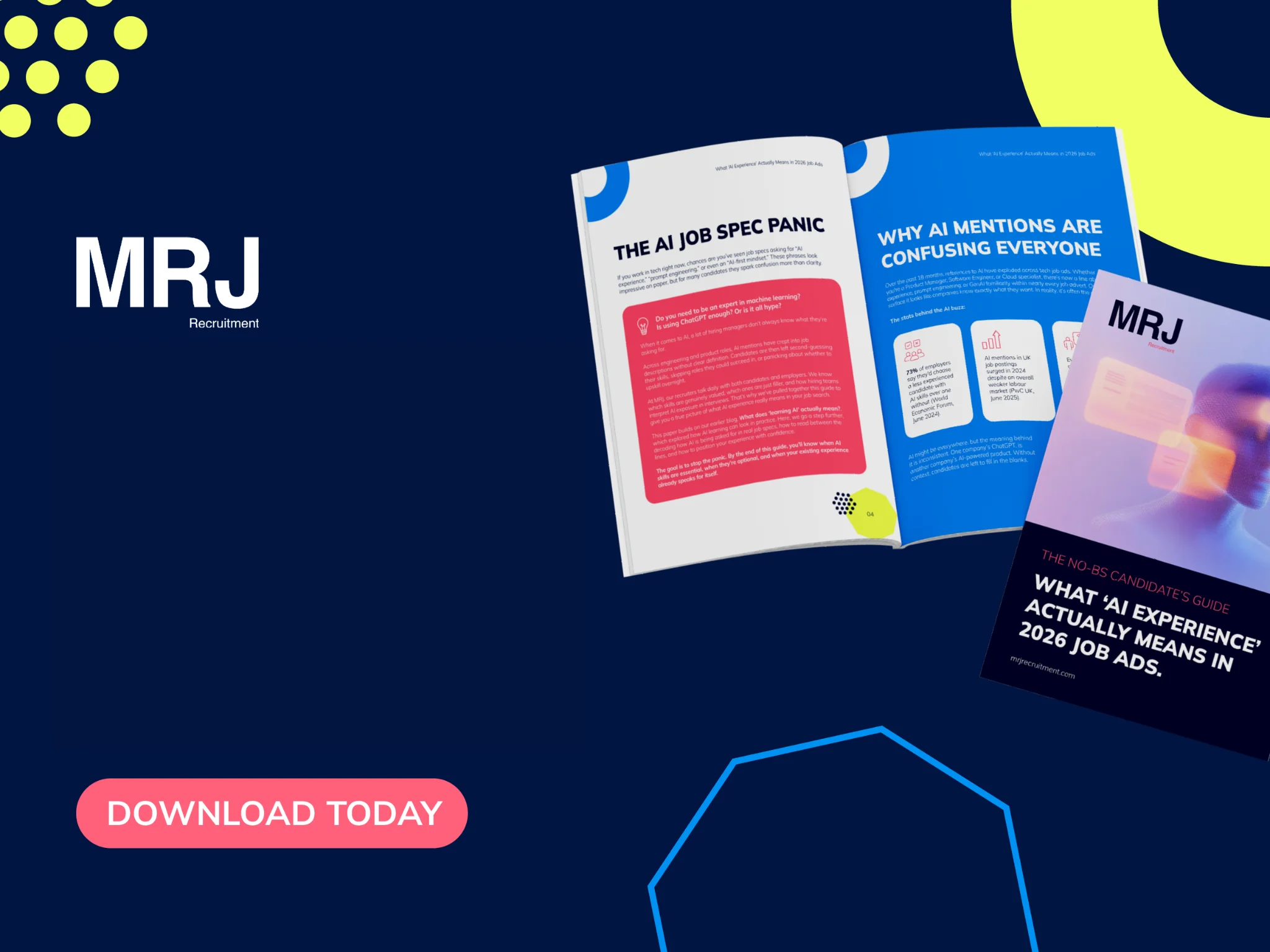Apple WWDC 2024 – Recap
12 Jun, 20245 minutesApple’s Worldwide Developers Conference (WWDC) made a grand return this week to its ic...
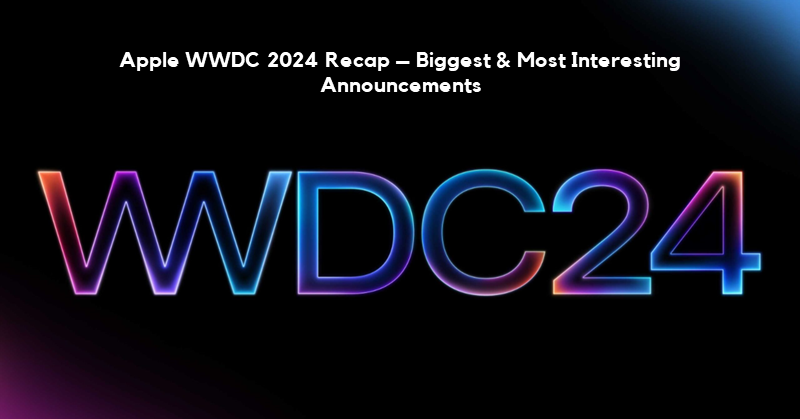
Apple’s Worldwide Developers Conference (WWDC) made a grand return this week to its iconic headquarters in Cupertino, California. Held at the state-of-the-art “Apple Park,” the event was a highlight for tech enthusiasts, developers, and Apple fans worldwide.
But what stole the show and, as a techy, what should you be keeping track of? We've compiled a list of the most noteworthy announcements that you should your ears out for.
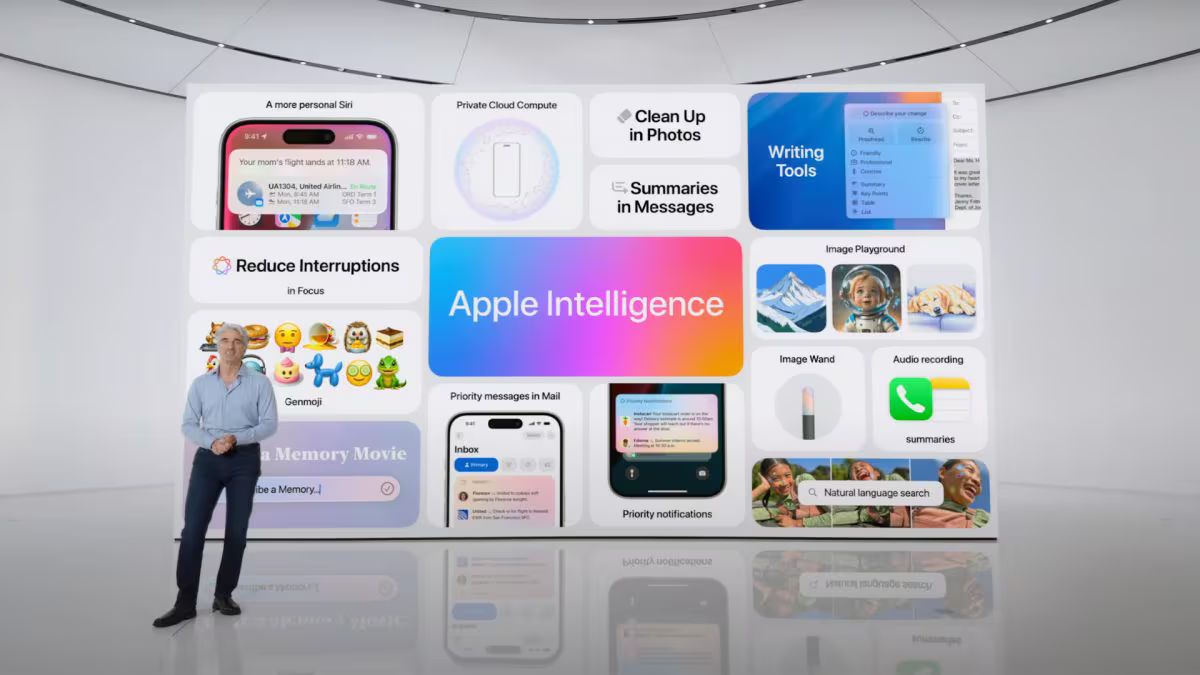
Apple steps into AI...in their signature style
Apple has been tight-lipped about how they'd officially enter the booming AI market. They're known for strict control over their brand, often coining unique terms for existing features. Remember "Spatial Video" for 3D video for example? - It's always been their way of distancing themselves from the likes of Samsung and competitors and selling themselves as different to the masses.
For the past few years, the tech industry has been buzzing with the question: how would Apple address the rise of AI? Unlike other areas where Apple might let competitors take the lead, artificial intelligence is too important to ignore. Apple simply had to make a move.
True to form, the recent conference emphasised "Machine Learning" heavily and a new partnership with OpenAI to integrate ChatGPT. This all led way to the official announcement of - Apple Intelligence (AI)
It’s a great way to differentiate themselves from competitors using AI as a term whilst still playing into the general public being interested in the tech
Apple intelligence will be their own purpose build intelligence system that:
“Puts powerful generative models right at the core of your iPhone, iPad, and Mac.”
Name aside, it’s pretty much what you’d come to expect with generative, diffusion LLMs (large language models) now system-wide implemented across the newest apple products. Apple intelligence is baked across a variety of native apple app and offers a host of new features from generating images, Siri improvements, summarising text and more.
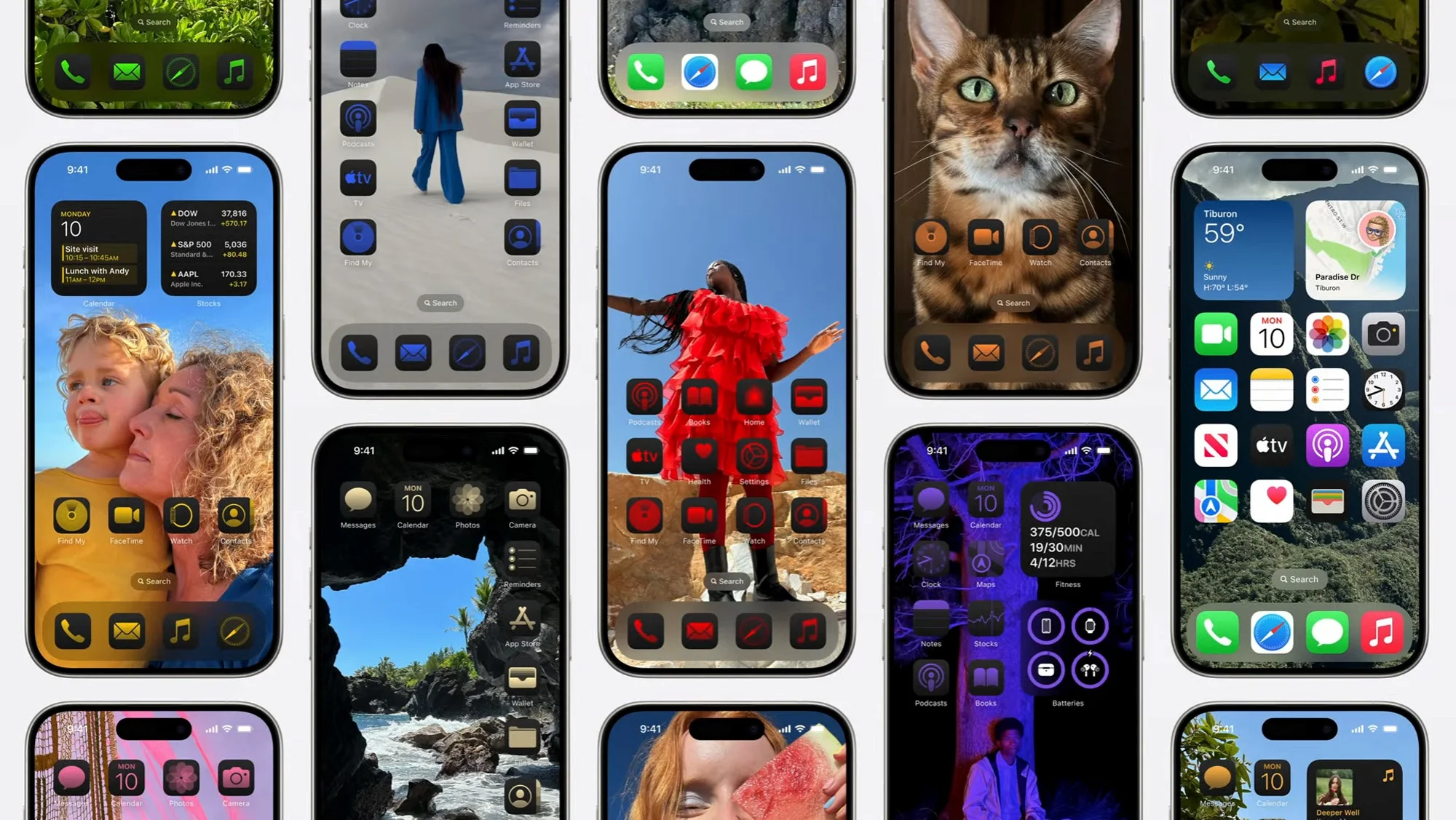
iPhone updates abound with iOS 18
Apple has traditionally been known for its curated design, offering limited customisation options. This focus on a controlled user experience has been a key difference between Apple and its competitors in the ongoing Apple vs. Android debate.
However, Apple has been gradually loosening the reins in recent times. We've seen the introduction of features like Lock Screen personalisation and custom widgets, allowing users to express themselves more.
The latest update in iOS 18 takes this even further. With a customisable Control Centre and the ability to freely arrange app icons on the home screen, Apple is offering a significant shift towards user preference and UI Design as a philosophy. Apple's embrace of personalisation might seem like a small shift, but it signifies a major change. The company, once defined by the rigid visual design principles of Steve Jobs and Jony Ive, is moving towards a more user-centric approach. This shift represents a significant departure from Apple's past and ushers in a new era that we'll be watch develop further.
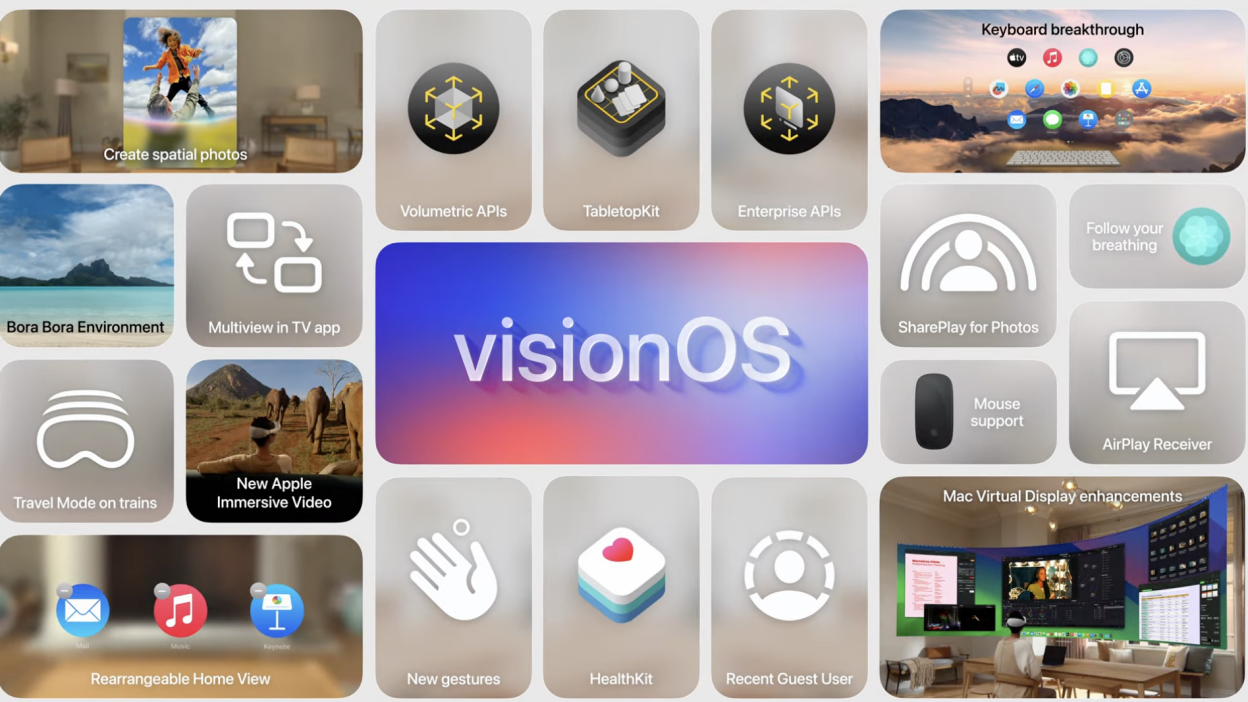
Vision Pro continues to evolve
Apple’s newest and most experimental hardware, the Vision Pro, has now received its second biggest update. This brings more key updates in VisionOS 2, which help refine the experience with improvements like enhanced gestures and other features.
Despite these advancements, the Vision Pro remains in its early stages. Its full potential is still being explored, and its high price point currently limits it to a niche market. For now, it serves primarily as a sophisticated prototype, offering developers a glimpse into future capabilities while hinting at a more affordable, mass-market version that may come in the future.
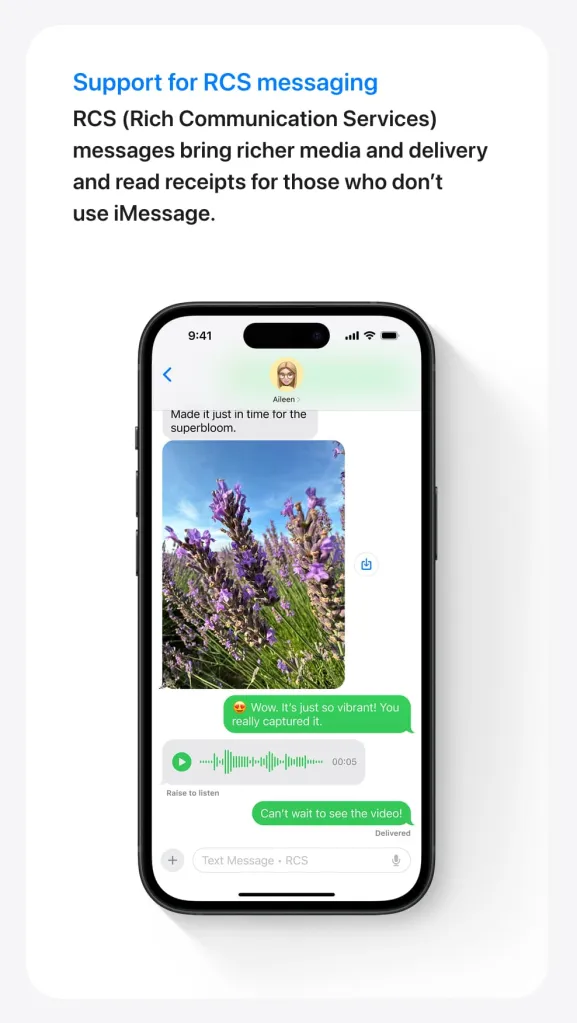
RCS support is finally here!
Apple is finally adding support for Rich Communication Services (RCS) to its Messages app in iOS 18! - Made as a replacement to the decade-old SMS system, this means iPhone users will be able to enjoy features like better quality photo and video sharing, and improved group messaging when texting Android users.
After years of user and carrier requests, Apple is finally adopting RCS messaging. This decision likely comes from a combination of factors: user pressure, carrier influence, and even some nudges from regulators and competitors who believe RCS offers a better overall experience for everyone.
In the past, Apple's messaging system created a visual distinction between iPhone and Android users (blue bubbles vs. green bubbles). This might have been a tactic to encourage Android users to switch to iPhones.
The arrival of RCS on iPhones (expected with iOS 18) signifies a shift towards a more unified messaging experience. While some differences may still exist between iPhone-to-iPhone and iPhone-to-Android messaging, RCS should make texting overall more seamless.
Anticipated security concerns take centre stage.
It’s an inevitable question that many suspected would be addressed. Apple has always tried to position itself as a bastion of security, especially with the increasing integration of AI into products – so what would their stance be?
In light of the security concerns, Tim Cook, Apple's CEO, made sure to emphasise that Apple Intelligence sets itself apart with its commitment to both personalisation and security.
"The key lies in keeping things private and using personal context," Cook said. "People are rightfully concerned about their data being shared. By processing information privately and integrating it seamlessly, Apple Intelligence offers a unique and secure solution."
Users were assured that AI tasks would be dealt with directly on your device whenever possible. If some data exchange with cloud services becomes necessary, the data will be encrypted and subsequently deleted. To further ensure transparency, Apple plans to open this process, called Private Cloud Compute, to independent security experts for verification. They also assured attendees ChatGPT bots will not be given permission to train its models with Apple users' queries.
It's a solid stance on security that should serve to alleviate at least some of the naysayers fears.
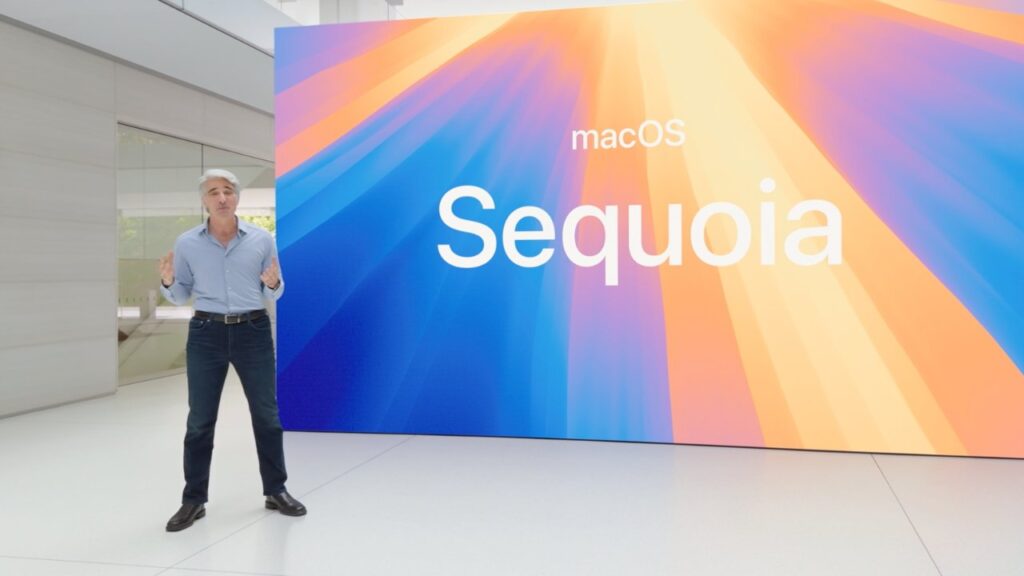
Mac gets even mightier as a home hub with macOS Sequoia
Apple's latest macOS update, Sequoia, further strengthens the Mac's position as the heart of your Apple ecosystem. Inspired by a popular Windows 11 feature, Sequoia introduces iPhone mirroring. This lets you seamlessly control your iPhone from your Mac, complete with drag-and-drop file transfer. Imagine editing a social media video – Easily moving between Final Cut on your Mac and your iPhone for a perfect workflow - theoretically.
Sequoia also brings a long-awaited upgrade: Keychain transforms into a full-fledged password manager. Generate and store all your passwords securely in one place, accessible across all your Apple devices. This app even comes to Windows, potentially making it a top contender when it launches later this year.
Finally, Safari gets a refresh. A new viewer setting prioritises videos, and a handy summary button provides quick insights into any article.
Conclusion
With the introduction of Apple Intelligence, the tech giant enters the AI arena under its distinctive branding along with promising security enhancements and great personalisation across iOS and beyond.
The recent WWDC stands out as one of the most impressive in years, with Apple signalling its readiness to take centre stage and challenge its competitors head-on. At last, the long-standing questions about Apple's AI strategy have been answered, and they’ve done so in a way that only Apple can.



